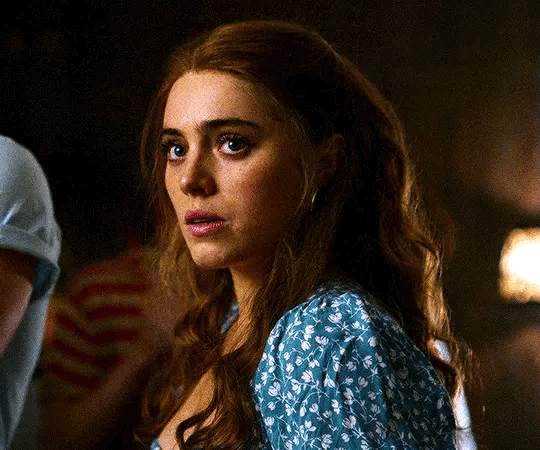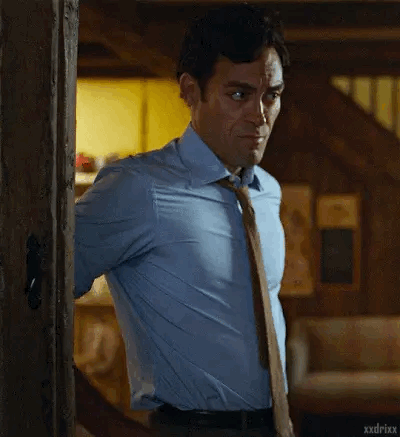‘An Unexpected Encounter: When Loneliness Is Reflected in Another’.
I am missing a figure I never had in my life or it’s real love (or something else that can’t be described)?
A Bit of a Backstory
Italian, only child with a single mom and plenty of relatives.
By any means, I’m not your typical Italian girl. Even though I wrote this before, I want to write it again to ensure everyone understands where I come from.
When I was a child, I didn’t understand what my young adult life would be or how I was transforming. I’m just 21.
I am writing this article after encountering two academic failures—something unusual for me, as I had never failed before. When I did, it felt like a flaw.
Rivals, the TV Series
Rivals is a Disney+ series (here in Europe), adapted from Jilly Cooper’s books. Set in 1986, it follows the rivalry between Rupert Campbell-Black, a British nobleman and old-money MP, and Tony, Lord Baddingham, a nouveau riche businessman who married into old money. Their competition spills into the world of Baddingham’s independent commercial television station, Corinium, located in the fictional county of Rutshire in the Cotswolds region of southwest England.
To strengthen Corinium’s programming, Lord Baddingham brings in American producer Cameron Cook and hires dynamic Irish newsman Declan O’Hara—husband of actress Maud—away from the BBC. This world of power struggles, media influence, and personal betrayals sets the stage for characters whose lives intertwine in unexpected ways.
Who is Taggie O’Hara?
Agatha “Taggie” O’Hara (played by Bella Maclean) is the middle child of Declan and Maud O’Hara. Unlike her parents, deeply involved in media and entertainment, Taggie is a responsible and caring young woman with aspirations of starting her own catering business.
Taggie is dyslexic, and her mother belittles her for it. Over time, she becomes entangled in a complex relationship with Rupert Campbell-Black, a charming yet controversial politician and businessman.
Who’s Rupert Campbell-Black?
Rupert Campbell-Black (played by Alex Hassell) is a central character in the story. In the novels, he’s depicted as a charismatic yet flawed former Olympic show jumper turned Conservative MP. He embodies both charm and moral ambiguity.
Rupert and Taggie’s dynamic in Rivals
Taggie, a 20-year-old woman, meets Rupert under circumstances I won’t describe (you’ll have to watch the series). He’s older, cynical, and known for his romantic escapades. But as their relationship evolves, something shifts. Rupert, despite his flaws, sees Taggie in a way no one else does. That struck a chord in me—I know what it means to want to be seen.
As their bond deepens, she learns to navigate adult relationships, recognizing the nuances between good and evil. Rupert, initially a womanizer, begins to change through Taggie’s presence. She gives him a reason to strive for better, proving that even those with turbulent pasts can find redemption through love and human connection.
One of the most touching aspects of Rupert’s behaviour is his effort to understand Taggie’s dyslexia, adjusting his writing to help her comprehend. Their romance is slow-burning, filled with tension and longing—those moments of unspoken desire being my favourite.
Taggie’s relationship with her mother
Taggie’s home life is marked by a quiet kind of neglect—not from absence, but from presence without care. Her mother, Maud, fails to understand her and actively diminishes her. Every mistake becomes proof of her inadequacy, and every attempt to carve her path is dismissed. Maud belittles her dyslexia as if struggling to read means struggling to be worthy.
That’s where I see myself in Taggie. There’s something about being the overlooked child, realizing that sometimes, validation won’t come from those who should give it. So, like her, I looked elsewhere—in books, in stories, in people who made me feel seen. Maybe that’s why her story resonates with me so much.
When It’s Just Not a TV Series
Let’s call him Rupert.
There’s a reason for this name choice, and I know what you might think—it seems random. But there’s irony in it. The Rupert of my story follows the actor who plays Rupert Campbell-Black on Instagram, making fiction and reality uncannily intertwined.
Rupert Campbell-Black intrigues me because he isn’t perfect. Neither is my Rupert.
First, the age.
They’re both in their 40s—a detail that may seem trivial but isn’t.
Second, the charm.
It’s easy to assume men like them are untouched by demons, but they carry them—too many for a young girl to fix.
Third, the smile.
The kind that looks confident but sometimes hides something else. A smile well-practiced, a shield. I know that smile—I’ve worn it, I’ve seen it. And that’s when I knew: it wasn’t just admiration. It was recognition.
“Shakespeare once wrote…”
There is a tide in the affairs of men, which, taken at the flood, leads on to fortune.
So, I wrote him a letter.
I won’t go into detail about how he received it, but he did—right before Christmas. It was short, just one page, yet filled with hope. Some might call it reckless, even foolish. The people who know what I did certainly think so. But to me, it wasn’t crazy. It was something I had to do.
Realistically, what else could I have done? Words were all I had, so I gave them—hoping they would reach him in a way nothing else could.
I think you’re wondering if my words reached him. They did.
At the end of the day, I’m not just an “admirer.” I’m a university student, barely making ends meet, caught between deadlines and dreams, hoping to break free from my one-unit home. To finally be alive and be seen, like Taggie.
“I Heard That You Were Sad.”
I speak as if I know Rupert (plot twist, I don’t—but everything seems bound to happen).
Behind the usual charm, something was hidden—something heavier than usual. Maybe someone influences him more than they should (I have my guesses). I can relate. My mother has influenced me for as long as I can remember. And from what I was told (three different people said the same thing), someone had, and still has, the same toxic grip on him.
I wonder if the sadness I saw in him mirrors my own—the kind that doesn’t come from loss but from absence. The kind that makes you crave not what someone can give you, but simply their presence.
Tears are probably falling for both of us, but we hide them from each other to avoid making those around us suffer.
Am I Still Trapped In My Childhood Without Knowing It?
I used to think I was unaffected. But absence lingers in silence, in things left unsaid.
Maybe that’s why he matters in my life—because he reflects something I’ve carried with me all along, something I didn’t want to see because it hurt too much.
But does recognizing the wound mean I can heal it? Or does it only make me more aware of how deep it runs?
Understanding The Problems
There’s something about his presence in my life—even if it’s distant and indirect—that makes me question everything I’ve always known and taken for granted.
Maybe, it’s not about finding the right answers yet, but allowing myself to grow, to open up to that world that always scared me in one way or another.
I can't change my past, making different choices, being helped and being saved, but I also know that I can't change his past and he can't change his.
The most meaningful encounters are often the ones we never see coming.
I know why I chose psychology now. It was just hate, a choice full of hate, fueled by a system that didn't help me grow, and the result of this now is that I'm stuck, and I keep being scared of the world that is awaiting me.
I guess he di,d or he's doing the same thing as me, suffering in silence.
His apparent suffering and my suffering are making me realize that we need more help; we need to ask for help even if some days it’s hard.
The Unwritten Ending
Maybe this is nothing more than a passing passion, a fleeting curiosity.
Or maybe, without realizing it, I’ve already stepped onto a path I was always meant to follow.
Life rarely gives clear answers. Some stories are written in ink. Others, like this one, are still unfolding, and every day, I wait—anxious, hopeful.
I don’t know what will happen when our paths finally cross.
Maybe nothing.
Maybe everything.
But for now, I’ll keep writing this story—one day at a time.




